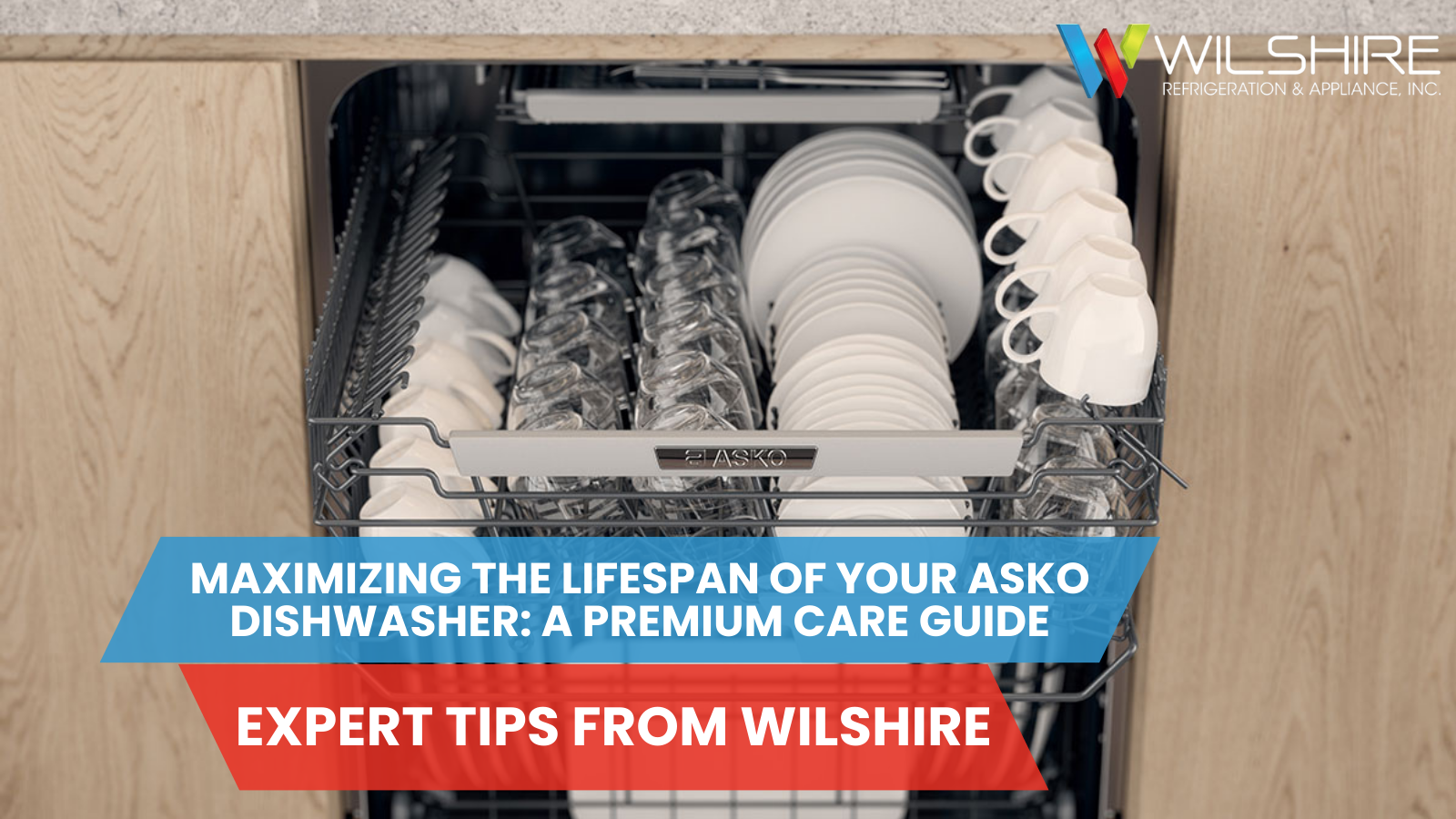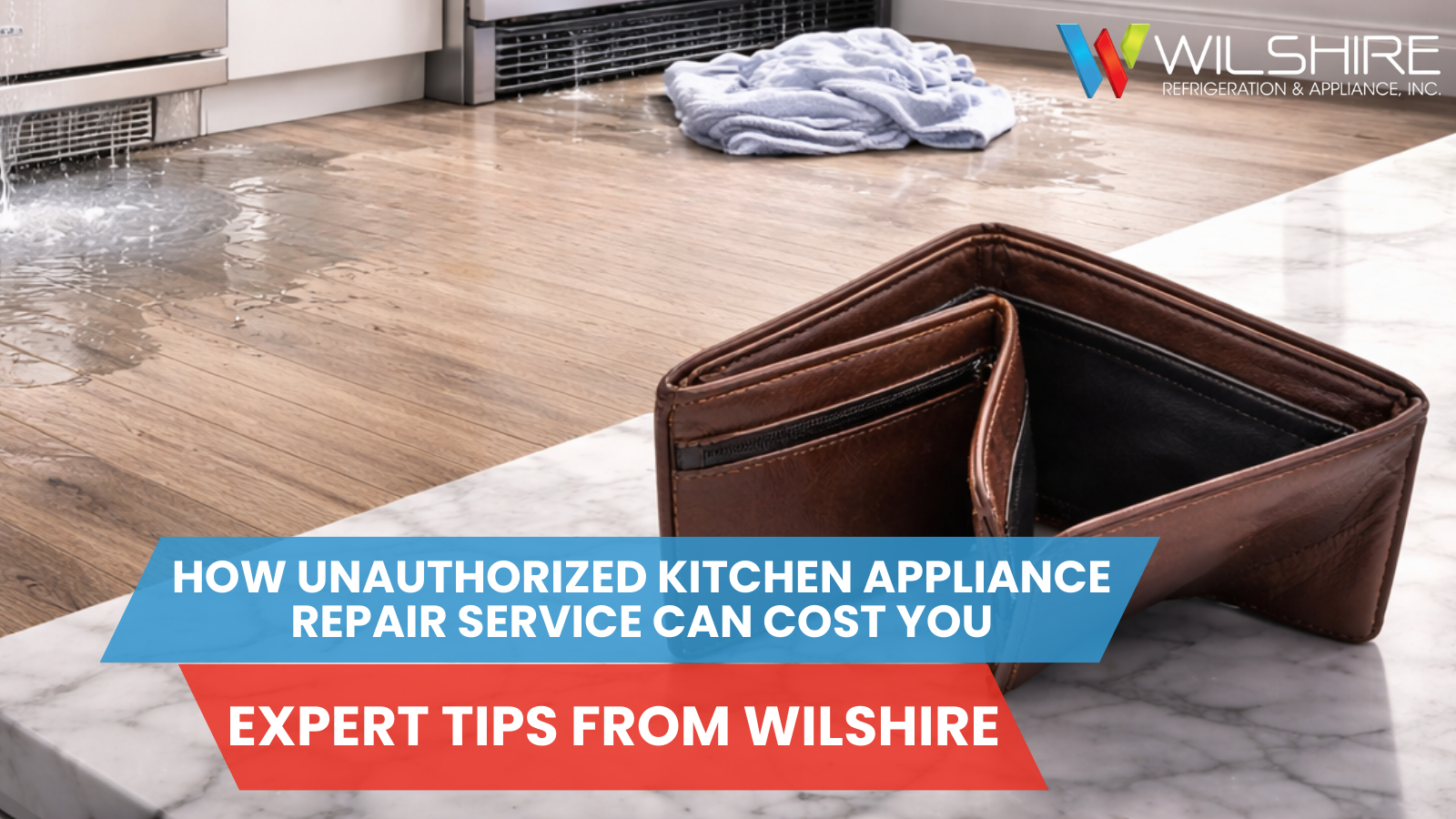Your Bosch oven is reliable until it suddenly isn’t. When it stops heating properly, throws an error code, or just refuses to turn on, it can bring your kitchen to a standstill. This article walks through the most common Bosch oven problems, offers practical troubleshooting steps, and helps you know when it’s time to call in a factory-trained professional.
From Bosch oven temperature problems to control panel issues, we’ll cover what you can handle on your own and what’s best left to an expert. If you’re dealing with complex repairs or need precision service for a high-end appliance, Wilshire’s team of certified technicians specializes in oven troubleshooting, including Bosch microwave oven repair, with the training and tools needed to fix it right the first time.
1. Bosch Oven Won’t Heat Up at All
If your Bosch oven isn’t heating up, the issue could be as simple as a tripped breaker, a blown fuse, or a power supply problem. Electric ovens rely on a steady current, and if that’s interrupted, the appliance won’t respond. Some ovens (in older Bosch lines) may use gas igniters, but many Bosch built‑in models are fully electric. If your model has an igniter and it’s not sparking, that’s one possible cause..
In other cases, a broken heating element could be the culprit. When all the basics check out, but the oven still won’t heat, it’s time to have a technician inspect the control board. These boards are complex and can fail silently, requiring diagnostic tools to confirm the issue.
2. Oven Heats Too Much or Overcooks Food
Bosch oven temperature problems often stem from a malfunctioning thermostat or a failing temperature sensor. If your meals are burning on the outside before they cook through, the oven may not be regulating heat correctly.
Calibration drift over time can cause your oven’s actual temperature to differ by several degrees from the set temperature. A factory-trained technician can test and recalibrate your oven using precise tools to make sure it heats to the correct temperature again, restoring consistent results.
3. Uneven Baking or Hot Spots
Uneven baking is frustrating, especially when one side of the dish is overdone while the other is still raw. This usually points to a convection fan issue or obstructed airflow inside the oven. A dirty or faulty temperature sensor can also create temperature imbalances. If you’ve ruled out blocked vents or obvious obstructions, it may indicate a deeper issue with internal components that requires professional attention.
4. Bosch Oven Door Won’t Close Properly
A Bosch oven door that won’t close all the way could be caused by a worn-out hinge, a bent latch, or a damaged door seal. Aside from the inconvenience, a loose door leads to significant heat loss, causing inconsistent cooking and longer preheat times.
Forcing the door shut can damage the frame or break internal parts, turning a minor issue into a major repair. It’s best to have it inspected before more parts are affected.
5. Display, Clock, or Control Panel Not Responding
If the display is flickering, buttons are unresponsive, or the clock keeps resetting, you might be dealing with moisture damage or food particles under the control panel. The E011 Bosch error code is often triggered when one of the buttons has been pressed or held too long, or when moisture or grime enters the control panel. It indicates a stuck or shorted key input. Cleaning may fix minor issues, but if the panel remains unresponsive, the control board or membrane may need replacement.
6. Strange Noises During Operation
Clicking, buzzing, or humming sounds coming from your Bosch oven aren’t normal, but not every noise means something is broken. Some models use cooling or convection fans that may produce a low hum, but persistent or unusual noise suggests a fault. If the sound is new, loud, or getting worse, stop using the oven and have it inspected. Ignoring strange noises can lead to more serious damage or safety hazards.
7. Self-Cleaning Feature Isn’t Working
If the self‑cleaning mode fails to start or completes only partly, a faulty door lock is one possible cause. But sensor issues, control board faults, or thermal cutouts can also be involved.
Avoid forcing the door open or restarting the cycle repeatedly. Gently cleaning around the lock and resetting the power can sometimes resolve it, but if the problem continues, it’s safer to have a technician handle it to avoid damaging sensitive parts.
8. Bosch Oven Shuts Off Mid-Cooking
In some models, built‑in safety thermostats may trigger a shutdown if the internal temperature exceeds limits (due to sensor or cooling system failure). Another possible cause is inconsistent power flow from a loose plug, tripped breaker, or internal wiring issue.
It could also point to a thermostat problem or a main control board fault. Frequent shutdowns during use shouldn’t be ignored, as they signal that the oven is trying to prevent further damage and needs professional servicing.
9. Bosch Oven Error Codes: What They Mean
Many modern Bosch ovens display error codes to assist diagnostics. For example, E011 often signals a stuck key or moisture in the control panel, while codes like ER6 can indicate door lock faults (depending on model). Codes like F31 can indicate a temperature sensor failure.
Some issues can be resolved with a reset or quick cleaning, but if the same code keeps showing up, it’s likely tied to a deeper mechanical or electrical issue. Consistent error codes are a clear sign it’s time to bring in a professional with Bosch-specific tools and training.
10. Burnt Smells or Smoke (Even When Not in Use)
A lingering burnt smell after recent use or intermittent smoke when powered can be a warning sign of internal residue, wiring issues, or shorting. If the smell persists, have it inspected before further use. It might be leftover food residue burning off during cooldown, but it can also indicate faulty wiring or an internal short circuit.
If you smell smoke or notice discoloration around the control panel or vents, unplug the oven immediately. Turn off the power at the breaker or disconnect the circuit immediately, since many built‑ins don’t use plugs. These symptoms may indicate an electrical short or fire risk. A certified repair technician should inspect it right away.
When to Call a Professional Bosch Oven Repair Expert
Some Bosch oven problems are easy to fix. Others? Not so much. Here’s when it’s better to stop troubleshooting and let a professional handle it:
- The issue involves electrical wiring, gas lines, or the main control board.
- You’re seeing recurring error codes or temperature problems you can’t resolve.
- DIY repairs could void your warranty or damage high-end components.
Wilshire’s factory-trained technicians know Bosch appliances inside and out, and they use authorized parts to make sure the repair lasts.
Quick Bosch Oven Maintenance Tips to Prevent Repairs
Staying ahead of oven problems is easier than dealing with unexpected breakdowns. These simple habits can help keep your Bosch oven running like it should:
- Wipe up spills right away to keep residue from burning or damaging the interior.
- Inspect seals, gaskets, and vents monthly to make sure heat stays where it should.
- Use cookware that’s designed for oven use and avoid oversized or warped pans.
- Schedule a professional inspection once a year, especially for older models or heavy use.
Frequently Asked Questions
What is the most common problem with Bosch ovens?
The oven not heating properly is one of the most common issues.
Can I fix a Bosch oven heating issue myself?
You can check the power and settings, but internal repairs should be left to a professional.
Why does my Bosch oven keep turning off?
It may be overheating, have a sensor fault, or be dealing with a power supply issue.
Is it safe to use a Bosch oven with an error code showing?
If the error persists or relates to temperature, door lock, or wiring, stop using the oven until it’s repaired.
How much does Bosch oven repair typically cost?
Repair costs vary by model, defect, and location. In many markets, common repairs (such as sensor or door lock) fall into a mid‑range cost bracket.
At Wilshire, it costs as little as $22.50 per month for a comprehensive, labor‑intensive maintenance and diagnostic service performed by factory‑certified technicians. This will ensure your Bosch ovens are working like new, preventing costly repairs in the future.
Call Wilshire for Expert Bosch Oven Repair Today
If your Bosch oven is acting up and you’re not sure what to do next, it’s time to let a factory-trained pro take a look. Wilshire offers fast, reliable service for luxury appliances that are handled with precision. Call (818) 898-9999 for same-day service or schedule a repair online to get started.




